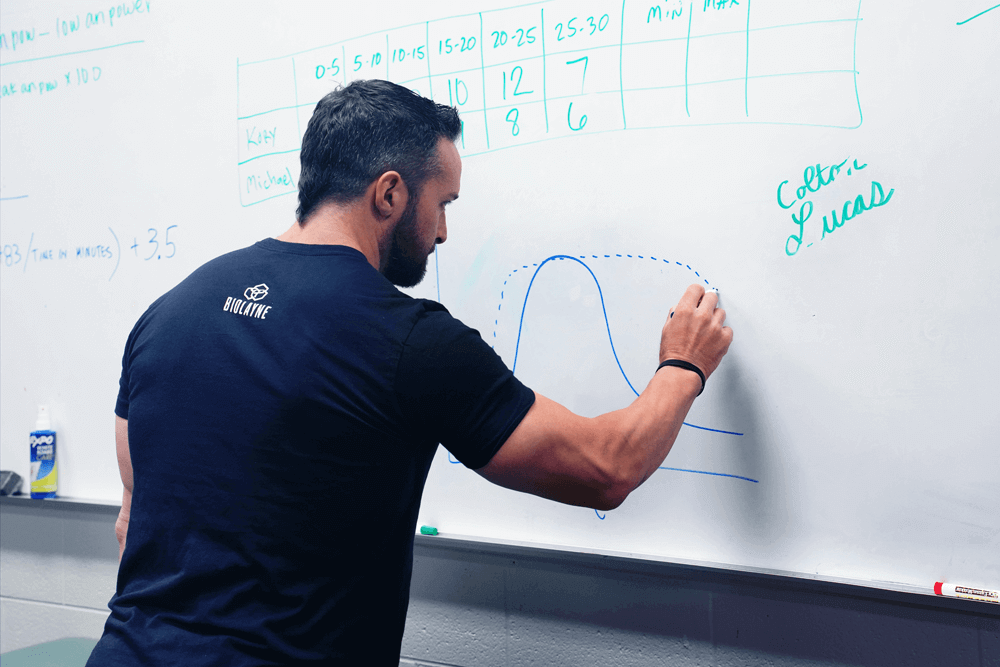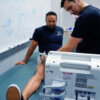Is total daily protein intake really the only thing that matters to maximize muscle growth or does the amount you have at each meal make a difference?
Science is known as a branch of knowledge or body of truth/facts. Science is based on research. The Oxford University Press defines research as, “the systematic investigation into and study of materials and sources in order to establish facts and reach new conclusions" 1 . The term research can have a variety of definitions and meanings depending on the context. There are many different branches of research with diverse focuses. This guide will provide a general understanding of research from a broad perspective and narrow it down to the details that are of specific importance to exercise and nutritional science. It’s important to understand that many of the definitions, topics and concepts that we discuss have multiple definitions and lack clear characteristics. With everything we discuss in this guide, we will provide our best definition and interpretation as we understand it. Our goal with this guide is to provide you with the necessary knowledge and information you need to critically read and interpret scientific publications and their respective findings. Remember, one study doesn’t prove anything. Individual studies are pieces to a much larger puzzle.
Tuckman, 2012 3 characterized the research process by these five properties:
- Systematic: researchers follow certain rules and parameters when investigating a specific question and designing a research study. This involves identifying variables of interest, designing a study to test the relationships of the variables, and collecting data to evaluate the problem and prediction.
- Logical: examining the procedures from testing a theory allows for evaluation of the conclusions that are made.
- Empirical? collecting data.
- Reductive: evaluating data to establish generalizations for explaining relationships.
- Replicable: the research process is recorded and described in detail to allow for future studies to test the findings and build future research.
The Scientific Method
The scientific method is a formal set of steps that researchers follow to conduct research. The scientific method can be broken up in a variety of different ways, but for the sake of simplicity we will divide the scientific method into these four steps 3.
- Identifying and developing a problem: all research starts with identifying a problem or topic of interest and defining the studies purpose.
- Formulating the hypotheses: a hypothesis is a testable statement of the anticipated results of a study. This is a formal prediction of what will occur when the study is carried out, based on prior results or theory.
- Gathering data: researchers use processes and validated methods to measure and collect data during the study or experiment.
- Analyzing and interpreting results: once data is collected from the experiment or study, it is then analyzed using statistical methods to determine the accuracy of the hypothesis. Researchers aim to understand what was found and how it fits within the context of other evidence.
Variables
Variables are factors that can be measured or manipulated during research. Once the problem is identified variables of interest are determined to design a study around those variables to be tested and measured. There are a number of different types of variables and here we cover the primary variables that you should know to further understand the research process.
Independent Variables
Independent variables are what is being manipulated by the researcher to determine the relationship or affect it has on another variable. Independent variables are also known as the experimental or treatment variable, input, cause or stimulus. For example, an independent variable could be the type of diet subjects are following (i.e. high carb, high fat, low carb, etc.). Independent variables can also have different levels. For example, if a training study is evaluating high, moderate and low training volume and muscle hypertrophy, training volume would be the independent variable with the different levels being high, moderate and low.
Dependent Variables
Dependent variables are measured following a treatment or stimulus. Dependent variables are known as the output or response variable and they are observed or measured to determine the effect of the independent variable 2. The dependent variable changes as a result of the manipulation of the independent variable. Examples of dependent variables are body composition, strength, resting metabolic rate, blood hormones, etc. If a study is investigating high fat vs. low fat diet and weight loss, weight loss would be considered the dependent variable while the type of diet would be considered the independent variable.
Control Variables
Control variables are factors that could influence the results and are left out of the study 3. Control variables are not a part of a study and instead controlled by the researcher to cancel out or neutralize any potential effects they may have on the relationship between the independent and dependent variables 2. The caloric intake in a diet study could be viewed as a control variable when comparing two different types of diets.







